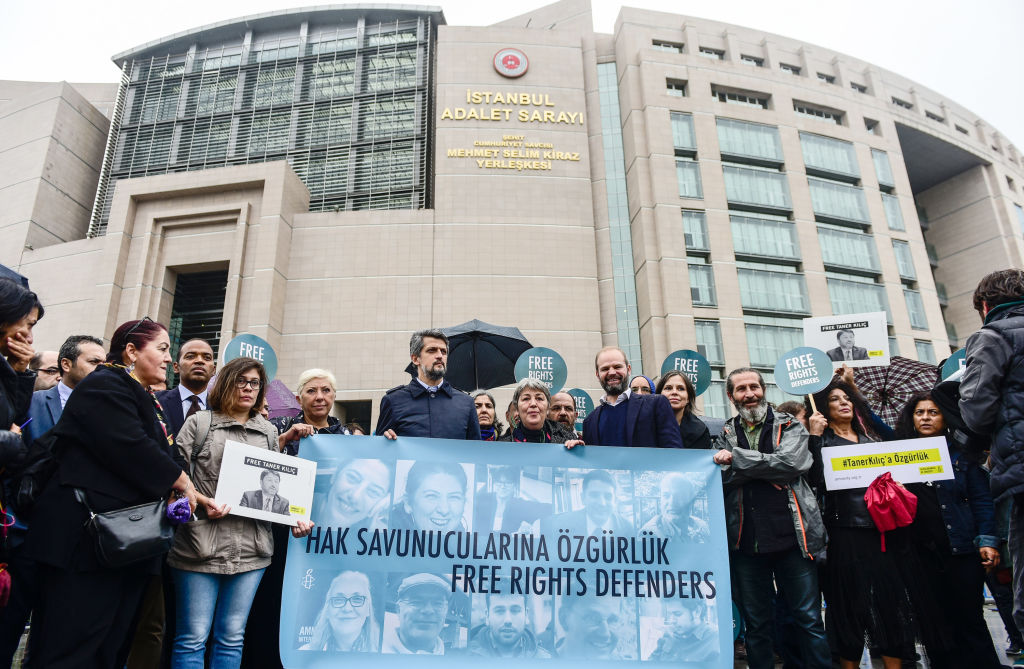Taner Kılıç, Amnesty Turkey’s Honorary Chair, and İdil Eser, the organization’s former Turkey Director, are being tried alongside nine others on baseless allegations of “membership of a terrorist organization.”
“After more than two years and without a shred of credible evidence presented to substantiate the absurd charges made against them, it is now time to end this judicial farce and acquit Taner and the Istanbul 10,” said Kumi Naidoo, Amnesty International’s Secretary General.
“Over the course of eight hearings, the prosecuting authorities have failed to present any credible evidence of any criminal wrongdoing, yet the threat of conviction has hung over these 11 human rights defenders but also as a warning to anyone else standing up for human rights in Turkey.”
Taner Kılıç spent more than 14 months in prison before his release on bail in August 2018. Eight of the Istanbul 10 spent almost four months each behind bars before they were bailed in October 2017.
“Taner and the Istanbul 10 have dedicated their lives to defending the rights of others and are potent symbols of what is still happening under the authorities’ relentless crackdown on civil society in Turkey,” said Kumi Naidoo.
“Human rights defenders in Turkey spend their days either languishing in jail or living in constant fear of arrest, prosecution and imprisonment. The Istanbul 10 and Taner should be exonerated, and all those jailed merely for defending human rights must be immediately and unconditionally released.”
An international delegation of senior Amnesty International representatives from around the world are attending the hearing in Istanbul including: Kate Allen, Director of AI UK; John Peder Egenaes, Director of AI Norway; Esteban Beltrán, Director of AI Spain, Anna Lindenfors, Director of AI Sweden.
BACKGROUND
The prosecution has failed to produce any evidence of criminal wrongdoing, let alone ‘terrorism,’ during more than two years of this prosecution.
The conviction of any one of the 11 would represent further and even more blatant criminalization of human rights activism.
The human rights defenders on trial who are lawyers (Taner, Nalan and Şeyhmus) could also lose their licenses to practice law after a conviction for a terrorist offense.
The prosecution’s case against Taner relied on the allegation that he had the ByLock application on his phone. ByLock is an application that Turkish authorities claim was exclusively used by members of the Fethullah Gulen Terrorist Organisation (FETO), which they accuse of having organized an attempted coup in July 2016.
In June 2018, months after their arrest, a 15-page police report was finally submitted to the court. The report showed there was no evidence that Taner Kılıç ever had ByLock on his phone.
The report – seen by Amnesty International – reveals that forensic examinations were carried out on Taner Kılıç’s laptop, mobile phone, three USB sticks, a SIM card and a memory card.
ByLock does not appear on the list of items found on the phone, including deleted applications. This corroborates the findings of four independent forensic reports previously submitted to the court. All found no evidence that Taner had downloaded or used the ByLock app.

